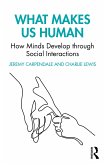One doesn't have to travel extensively to realize that there are intriguing differences in the ways in which people from different cultures tend to behave. Gartstein and Putnam explore whether these differences are shaped during the early years of life, at the moment when children are just beginning to understand how, when, and why they should express some emotions, and not others.
Based on the findings of the Joint Effort Toddler Temperament Consortium (JETTC), which asked parents from 14 different countries multiple questions regarding their main goals and techniques for raising children to be successful in their culture, Gartstein and Putnam analyze how children's characteristics (both normative and problematic) are shaped by different cultural environments. Drawing from insights in anthropology, sociology, and developmental psychology, the book explores the full spectrum of human experience, from broad sets of values and concerns that differentiate populations down to the intimate details of parent-child relationships. The results reveal a complex web of interrelations among societal ideals, parental attempts to fulfill them, and the ways their children manifest these efforts. In doing so, they provide a revealing look at how families raise their young children around the world.
Toddlers, Parents, and Culture will be of great interest to students and scholars in temperament, cross-cultural psychology, parenting and socioemotional development in early childhood, as well as professionals in early education, child mental health, and behavioral pediatrics.
Based on the findings of the Joint Effort Toddler Temperament Consortium (JETTC), which asked parents from 14 different countries multiple questions regarding their main goals and techniques for raising children to be successful in their culture, Gartstein and Putnam analyze how children's characteristics (both normative and problematic) are shaped by different cultural environments. Drawing from insights in anthropology, sociology, and developmental psychology, the book explores the full spectrum of human experience, from broad sets of values and concerns that differentiate populations down to the intimate details of parent-child relationships. The results reveal a complex web of interrelations among societal ideals, parental attempts to fulfill them, and the ways their children manifest these efforts. In doing so, they provide a revealing look at how families raise their young children around the world.
Toddlers, Parents, and Culture will be of great interest to students and scholars in temperament, cross-cultural psychology, parenting and socioemotional development in early childhood, as well as professionals in early education, child mental health, and behavioral pediatrics.
This outstanding volume is a true tour de force. It tackles some of the most important and fundamental questions about how we develop as unique individuals in early childhood, around the globe and in our varied cultures. Written and edited by the world's leading scientists of childhood temperament, the book describes in rich detail the rationale and major findings of their unique and methodologically rigorous collaborative study of toddlers in 14 countries spanning Asia, Europe, and the Americas. The reasoning about the findings is guided by and integrated through a conceptual model that generates new knowledge and new hypotheses. It is a must-read for scholars and students of temperament and personality, individual differences, and cultural influences on human development.
Kirby Deater-Deckard, PhD, Professor of Psychological and Brain Sciences, University of Massachusetts Amherst (USA)
Kirby Deater-Deckard, PhD, Professor of Psychological and Brain Sciences, University of Massachusetts Amherst (USA)








